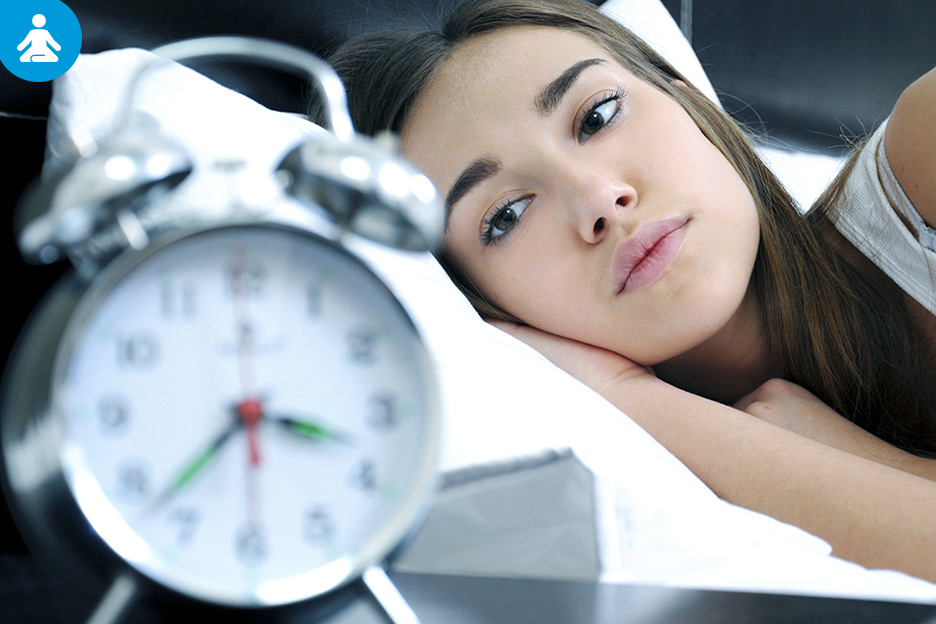We all know that sleep is important. Indeed, it is often partly responsible for how you feel throughout the day, in addition to contributing to good health. It is said that between 30 and 40% of adults experience sleep problems at one moment or another during a year.

When counting sheep is not enough
We have all, at one time or another, had to count sheep to fall asleep. The day after a sleepless night is often pretty awful: difficulty concentrating, fatigue and sleepiness, irritability, etc. Sometimes, insomnia even leads to physical symptoms during the day, such as headaches or nausea.
Insomnia is a sleep disorder that is very common in our society. If you still feel tired when you wake up in the morning, have a hard time falling asleep or sleep irregularly, you may be suffering from insomnia.
The need to sleep
Note that the need for sleep greatly varies from one person to another. Some people can get by on very little sleep while others need a lot of sack time to be at their best. Elderly people often sleep less than younger adults who, on average, need seven or eight hours of sleep per night. Children, for their part, usually need at least 10 hours of sleep to ensure that their parents’ day does not turn into a nightmare.
The many faces of insomnia
There are two types of insomnia: short-term and chronic. Short-term insomnia occurs spontaneously in the presence of a factor that temporarily hinders your ability to sleep well. Often, the problem only lasts a few days or weeks. Chronic insomnia is when a person has trouble falling asleep or staying asleep three times a week or more, for at least a month. An actual insomniac is a person who suffers from the consequences of sleep deprivation; in other words, someone who sleeps five hours a night without feeling any negative effects is not an insomniac. He or she simply needs less sleep.
When insomnia targets you, it can manifest itself in different ways, such as:
- difficulty falling asleep;
- waking up frequently during the night;
- waking up too early in the morning;
- trouble falling back to sleep;
- feeling tired in the morning, even if you feel that you slept enough.
Causes of insomnia
Insomnia is not an illness in itself, but rather a symptom indicating that something is not right or that something has changed. A multitude of factors can contribute to or explain a sleep disorder. For example:
- You travelled and are suffering from jetlag.
- You are an anxious person.
- You are rather sedentary or don’t exercise much.
- You have experienced or are experiencing stress at work or at home.
- You suffer from health problems, such as arthritis.
- You are a smoker, you drank coffee or alcohol, or consumed other stimulants before going to bed.
Some medications can also cause this problem or contribute to it, such as:
- cortisone derivatives;
- decongestants;
- antidepressants;
- psychostimulants;
- asthma medication.
If you think that medication you are taking may be preventing you from sleeping, discuss it with your pharmacist.
One problem, many solutions
Many people mistakenly believe that suffering from insomnia is rather normal. Consequently, they don’t look for a solution to their problem. This is unfortunate because there are many ways to prevent this condition and promote better sleep. First, you must “play detective” and look for possible causes of the disorder or contributing factors, then try to find ways to eliminate them.
Once you have completed this step, here are a few solutions to explore:
- Learn about the basics of a good sleep routine.
- Learn relaxation techniques, such as meditation, biofeedback or music therapy.
- Consider psychotherapy, especially if you are going through a difficult or stressful period.
- If the problem is temporary and mild, consider taking a natural product or over-the-counter medication (sleep aids). Always ask for your pharmacist’s advice before using them.
- Talk to your doctor, who will help you deal with the problem and prescribe medication. Note that medication prescribed to treat insomnia must always be taken in the lowest effective dose and for as short a time as possible. Using some of these medications on a long-term basis may lead to dependency.
- Visit a clinic specializing in sleep disorders.
Your pharmacist is an accessible and competent health professional who can help you deal with many common conditions, including insomnia. Don’t hesitate to consult him or her.
For many, insomnia can seem trivial, but those who suffer or have suffered from it know how many difficulties and worries it can cause. Don’t wait any longer to talk about it with a health professional. He or she will help you devise an effective strategy that will finally allow you to sleep like a log!
